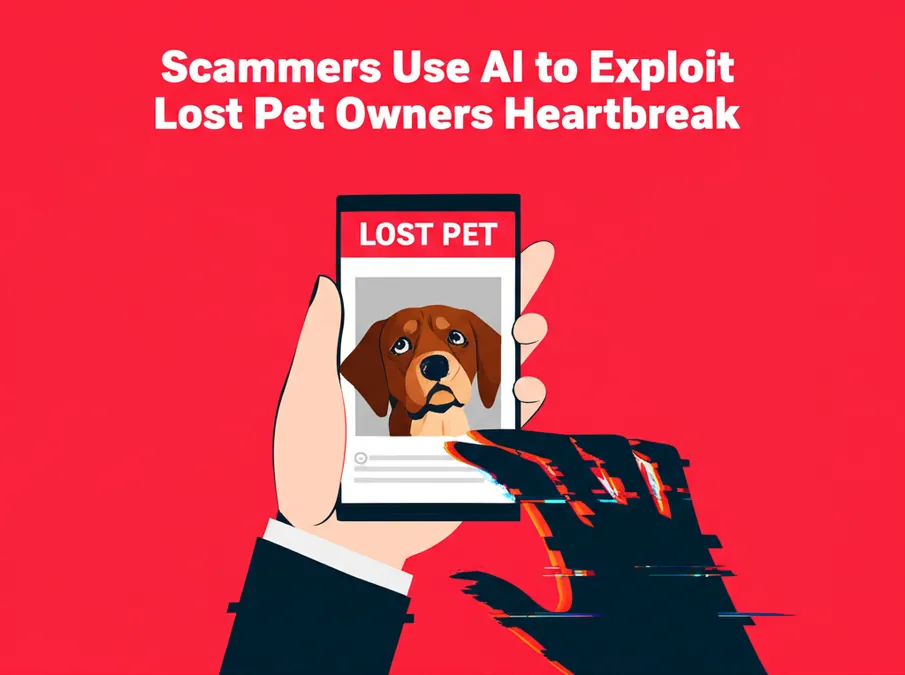Developer Offer
Try ImaginePro API with 50 Free Credits
Build and ship AI-powered visuals with Midjourney, Flux, and more — free credits refresh every month.
Pharmacist Fights Deepfake Scammers Stealing Her Image
A Shocking Discovery
It started with a simple message from a former colleague: "I've just seen this picture, is this you? Do you know they're using it?" Pharmacist Mary Baker never imagined she would see her own face in a bizarre, fabricated advertisement promoting weight-loss medication, but there it was.
The Facebook ad featured a doctored "before-and-after" image. The "after" shot was a real photo of Ms. Baker, but the "before" image was a distorted, AI-generated version of her. "At first I couldn't help but find it kind of funny," Ms. Baker admitted. "They've doctored it so ridiculously."
The real photo of Ms. Baker was taken from an ABC article that highlighted her award-nominated work providing vital medications to flood-affected communities. The scammers had stolen an image celebrating her professional dedication and twisted it for their own gain.
The Fiction Behind the Fake
The ad didn't just use her image; it invented an entire persona for her. The fake endorsement told the story of "Sarah" from Sydney:
"My name is Sarah and I live in Sydney. I have long been too self-conscious to come out from behind the counter at the community pharmacy I work in, but thanks to this miracle product I could finally have the confidence to be myself."
Ms. Baker was shocked by the elaborate lie. "They've come up with this whole story for me and and it's just so ridiculous because it's just not me," she said.
From Amusement to Anger
What started as a single, bizarre ad soon spiraled. Within days, more fraudulent endorsements began popping up, each one slightly different, showing Ms. Baker in various uniforms.
"I was expecting it to be a silly one-off," she explained. "I found the page, reported it and thought that would be the end — but then more people started sending it to me." Her initial amusement faded quickly.
"It got less and less funny and I got really quite angry."
Her anger wasn't just about the personal violation. As a healthcare professional, she was deeply concerned about the harm these scams could cause. "I'm disgusted by these companies that are profiting off the weight-loss industry and things like body dysmorphia," she stated. The thought that her image was being used to promote potentially dangerous, unapproved products to vulnerable people was what upset her the most.
A Futile Fight for Takedown
Ms. Baker took action. She reported the ads and the associated Facebook pages to Meta, the parent company. She also tried to warn others by commenting directly on the posts, but her efforts were quickly shut down. The page administrators blocked her and hid her comments, silencing her attempts to expose the fraud.
Her reports to Meta also seemed to go nowhere, with one screenshot showing a failure to even review the report.
A Wider Problem
This scam wasn't just targeting individuals. One of the fake ads brazenly used the logo of the Royal Melbourne Hospital (RMH). The hospital was forced to issue a public statement on social media, warning that they do not endorse any products and that scammers are creating fake identities of their staff.
When the ABC investigated the company behind the ads, their emails bounced back. Meta did not provide a response to their questions.
The AI-Powered Scam Epidemic
According to Professor Tama Leaver, an internet studies expert at Curtin University, these types of scams are becoming frighteningly easy to create.
"Unfortunately, the generative AI tools have made this so much easier to do," Professor Leaver explained.
"Anyone can grab an image and run a couple of prompts and generate the before-and-after photo."
While using and manipulating someone's image without their consent is against the law, taking legal action is often prohibitively expensive and difficult. The laws struggle to keep up with the technology, and the scammers are often hard to trace. Professor Leaver believes the ultimate responsibility lies with the platforms hosting this content.
"In the long run, we need platforms to do a lot better at taking these sorts of things down," he said.
For now, victims like Mary Baker are left with few options other than to "hit that flag and report button as quickly as you can" and hope for the best.
Compare Plans & Pricing
Find the plan that matches your workload and unlock full access to ImaginePro.
| Plan | Price | Highlights |
|---|---|---|
| Standard | $8 / month |
|
| Premium | $20 / month |
|
Need custom terms? Talk to us to tailor credits, rate limits, or deployment options.
View All Pricing Details

